
Fielding Dreams: From South Sudan to the Los Angeles Dodgers
17 Year Old Makes History and Inspires a Nation as MLB Eyes Talent in Africa
“This isn’t just about one player making it to the big leagues – it’s about paving the way for an entire nation.”
It was big news in 2024 when the Los Angeles Dodgers won their first full-season World Series in 36 years. They started 2025 by making more big news in sports history – becoming the first MLB franchise to sign a player from the nation of South Sudan.
At the tender age of 17, Joseph Deng already hit it out of the ballpark in making history for his own country. On January 18th of this year, he formalized a deal with the LA Dodgers that made him the first player from South Sudan to ever sign a professional baseball contract.
Social media erupted in posts like this one on Instagram: “Straight Outta South Sudan – 17 year-old Joseph Deng just became the first to do it for MLB! Throwin’ 95 mph heat putting Africa on the map!”
Great Expectations
At 6 foot 7 inches, the 185-pound right handed pitcher is known for his 95-mile per hour fastball and an impressive splitter. Scouts are eying his potential to become even more formidable, predicting he could hit the triple digits as he bulks up his weight and matures in the sport.
“Deng has an extremely lanky, long-limbed frame with tons of space to fill out and continue to add velocity once he gets stronger,” said a scouting report from Baseball America. “He has enormous physical upside and attacks hitters with a fastball/splitter combination.”
Other reports praised the mechanics of his pitching and added to the speculation about Deng’s upside potential. “Seventeen years old…triple digits on the heater within reach,” wrote one observer. “Once he puts on 50 pounds they’re gonna have him throwing 103,” said another.
Blazing New Trails
Deng became just the second player to be signed from the continent of Africa this year, alongside infielder Armstrong Muhoozi of Uganda, who was picked up by the Pittsburgh Pirates. The Dodgers are one of only two clubs who are beginning to look at baseball talent in Africa, as most focus on recruits from the Dominican Republic and Venezuela. Born on August 5, 2007, in South Sudan’s capital city of Juba, he is likely to have seen South Sudan’s civil war, but little is known about Joseph Deng’s backstory. The teen began to garner attention in February of 2024, when he appeared in an X post by Charlie Meyer – a user who promotes young African baseball talent. Meyer was one of the first to share news of the boy’s ability by posting a video of Deng pitching.
The post made its way to Dodger scouts and caught their attention. The franchise acted quickly to shore up a deal with young Deng. “With the Dodgers’ resources and scouting network behind him, he could soon be one to watch on the big stage,” The Playoffs wrote.
Light in a Dark Struggle
The announcement of Joseph Deng’s signing is a much needed spark of hope for the struggling country of South Sudan. The world’s youngest nation just gained its independence in 2011, and since has been embroiled in internal conflict, poverty, displacement, a battered economy, and weather disasters from floods to drought.
76 percent of the country lives below poverty level. One in three children aren’t in school, and 70 percent of the population isn’t considered literate. As South Sudan grapples with a serious food shortage, it’s also straining to support more than a million refugees now entering from Sudan to escape the border country’s civil war. It’s estimated that 9 million people in South Sudan are in need of humanitarian assistance, in a nation whose population is 11 million.
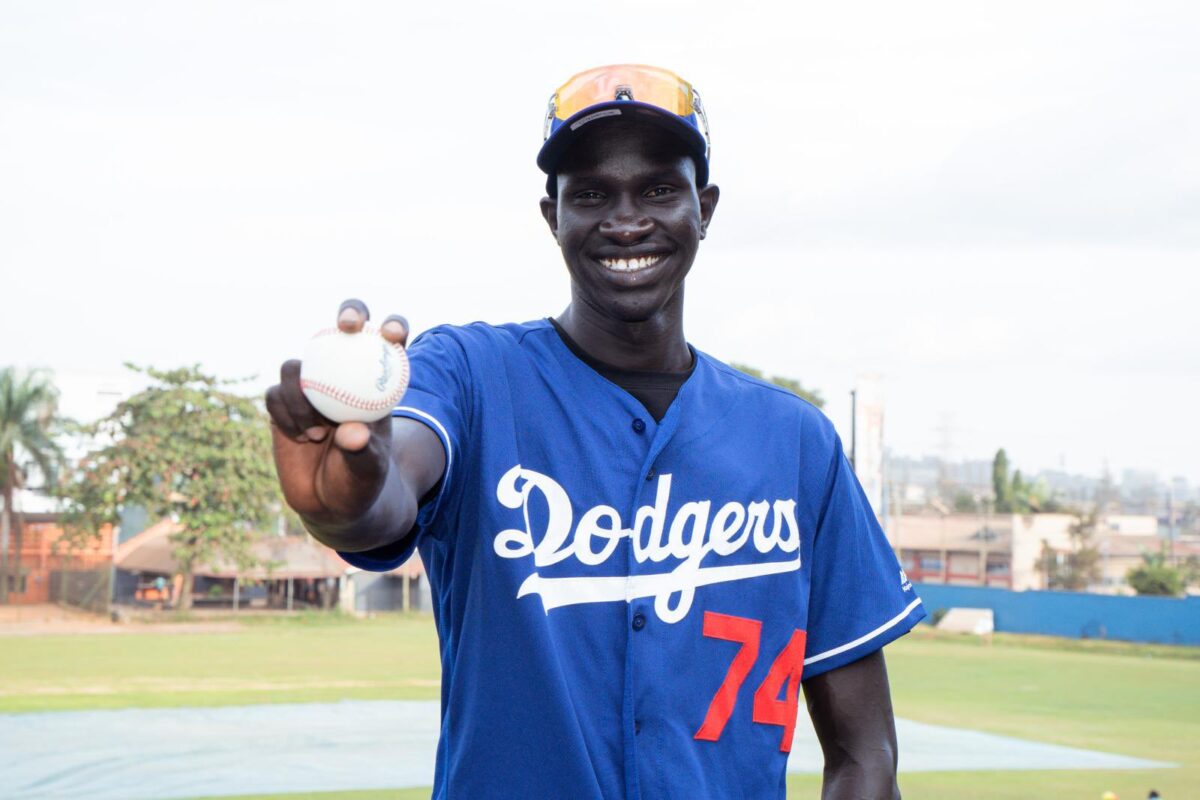
The Power of Hope
The news of Joseph Deng’s success is so much more to his embattled home nation than a sports story. It represents hope for future generations of athletes, and an invitation to dream beyond the borders of their country. It’s also considered a groundbreaking moment in baseball’s global reach.
“Deng’s journey from South Sudan to professional baseball in the United States is a testament to his talent and determination,” AfrikaVille wrote in a quote on X. “As he embarks on his professional career, he not only represents a personal achievement, but also serves as an inspiration for aspiring athletes from underrepresented regions in the sport. ”Others echo the sentiment. “This isn’t just about one player making it to the big leagues – it’s about paving the way for an entire nation,” wrote Because of Them We Can. “Joseph Deng’s journey is just beginning, and the world will be watching, because the future of baseball in South Sudan – and across the continent – just got a little brighter.”
Read more about this story here.
Related articles:
Joseph Deng Makes History as First Player From South Sudan to Sign a Professional MLB Contract – Because of Them We Can
Who is Joseph Deng? All you need to know about Dodger’s historic new signing
Meet the LA Dodgers new 17-year-old 6ft 7in wonderkid Joseph Deng, the first MLB star from South Sudan | The US Sun
Andscape | Straight outta South Sudan 🇸🇸🔥 17-year-old Joseph Deng just became the first to do it for MLB! Throwin’ 95 mph heat putting Africa on the… | Instagram
Joseph Deng Signs With Dodgers To Become 1st Pro Player From South Sudan
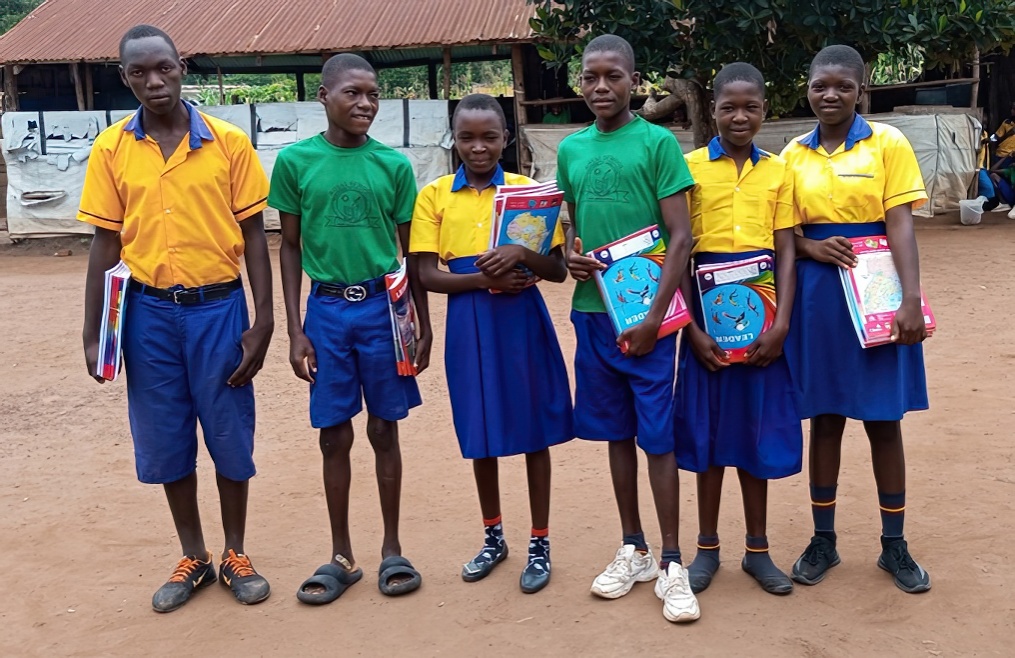
Families in Yambio
Saving Lives through Health and Hope
Having enough food to eat, washing with soap, going to school – these are simple privileges people living in the developed world take for granted. But when you’re without them, everything changes.
Sickness, poverty, and illiteracy can mean a lifelong sentence to suffering and need. We’re committed to supporting programs that stop the insidious cycle of poverty, and empower people to become self-sustaining, even contributing, members of their communities.
Stopping Hunger in Yambio
We work through a local partner, Star Support Group, to tackle these challenges through a variety of assistance programs that offer both immediate intervention and lay foundations for future self-sufficiency.
In Yambio, we reached out to a community of malnourished families with a targeted nutrition program. Strong parents are able to gainfully work, and healthy children can go to school. But in the dry season that sometimes lasts for months, the parched land makes growing crops nearly impossible. Families have to rely on stores they’ve saved up, and often go for days without eating to ration the little they have.
We gave malnourished families essential food supplements including rice, beans, sugar, and salt, along with basic hygiene items like soap, to help prevent sickness. It wasn’t long before families showed a marked improvement in their nutrition status and their overall well-being.
One mother of four expressed her gratitude, saying, “The food and soap came at just the right time. We were struggling, and this support made a big difference. My children are healthier and our home is clean, which gives me great peace of mind.” A few basic grocery items and some soap made a world of difference to this community.
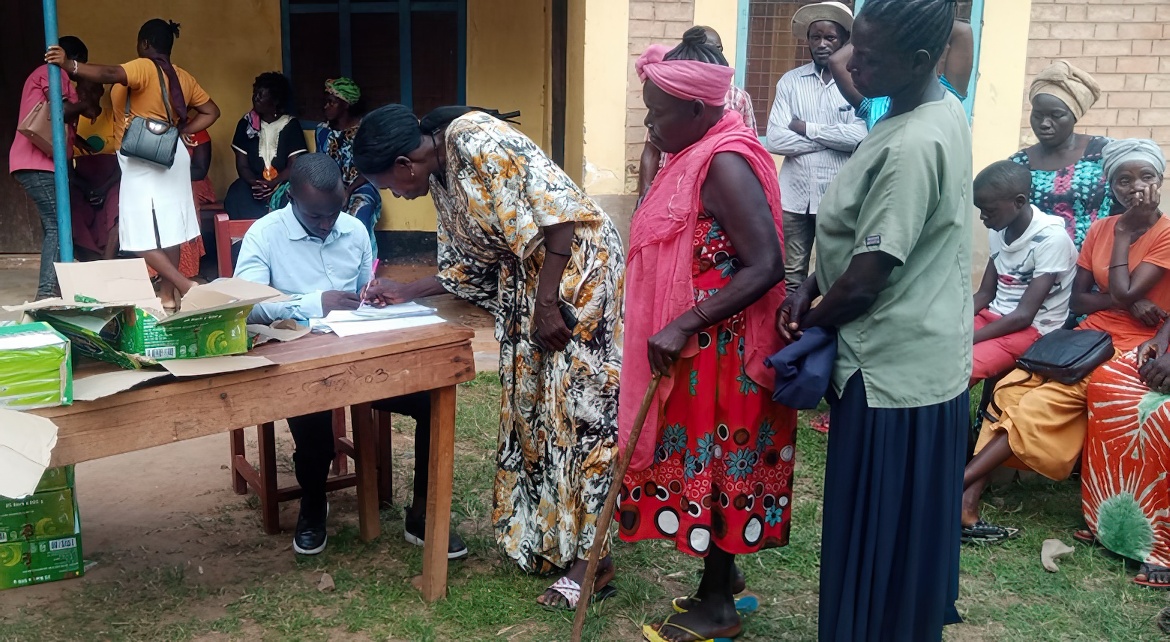
Helping Orphans to Dream Big
In South Sudan, orphans and poor children often have no chance to go to school. This chains them to a future of poverty and limited achievement. We support orphans and vulnerable children by providing tuition, uniforms, and school supplies, so they can receive the gift of education. Schooling opens up a future of opportunity.
In Yambio, 88 children received school uniforms, and 130 children were given school supplies and books. For many of these children, it was the first time they ever received such support and entered a classroom. School fees were provided for 154 orphans and children in need, including 11 students pursuing higher education – something no orphan in South Sudan could otherwise dream of accomplishing.
Together we are changing the trajectory of these children’s lives, giving them a new outlook for their future – one that is filled with opportunity and hope. Orphans who go on to complete higher education often return to their home areas to share their skills and give back to their communities. It is then we see the culmination of these vital assistance programs coming full circle: changing lives, so they can help change others.
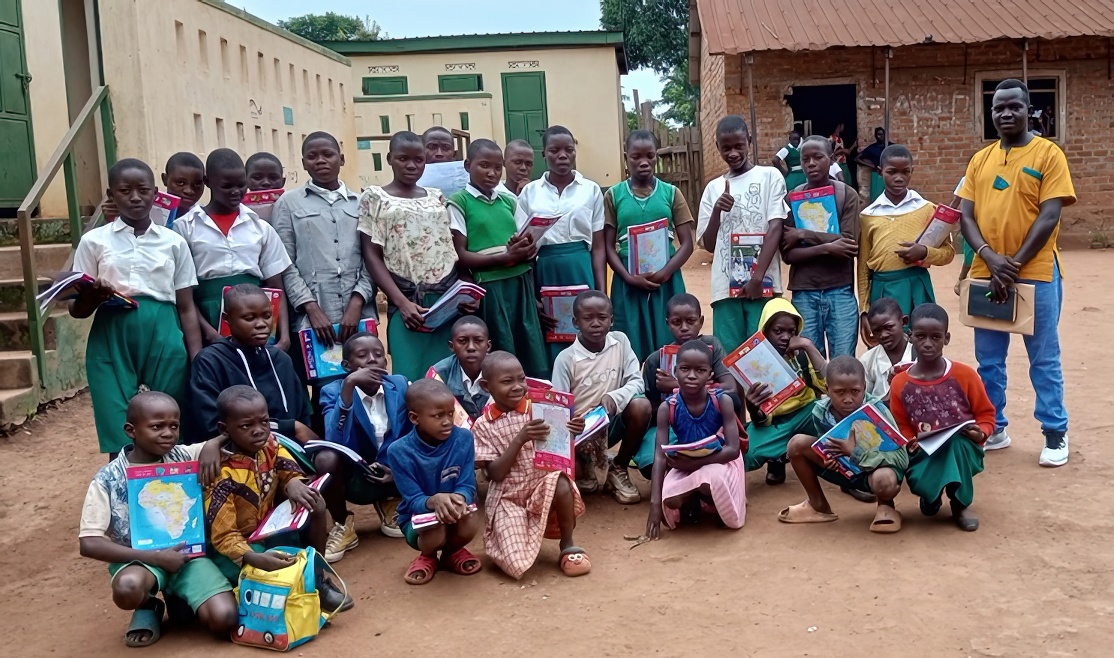
These stories of lives saved are made possible by the generous and compassionate support of Sudan Relief Fund’s donor community. Thank you for transforming the futures of vulnerable families and children.
Would you like to pray for us? Sign up for our email prayer group to receive weekly emails sharing important needs to pray for. You’ll join a faith community around the globe praying to bring hope and help to suffering people in a forgotten part of the world. Click here to find out more.

BREAKING NEWS: Chemical Weapons Used On Civilians in Sudan War
February 12, 2025 — Breaking news from Sudan’s civil war has been announced as the battle between the Sudanese Armed Forces (SAF) and the Rapid Support Forces (RSF) approaches its two-year mark.
Reports of chemical weapons use have now been added to the mounting evidence of war crimes against civilians, in a brutal ongoing conflict that is shocking the world as more information comes to light.
Horrific Effects of Chemical Weapons
The latest reports of chemical weapons use come from Amnesty International, who claims that civilians in the Darfur region are specifically being targeted.
Amnesty International cited firsthand accounts from villages of unarmed civilians, including children, describing being hit with smoke that “turned dark blue and smelled like rotten eggs.” Victims described the smoke coating the trees, the ground, and the people in a “thick black dust.”
Victims exposed to the smoke further described their skin turning white, rotting or hardening, and falling off in sections. Other reports said children were vomiting blood.
“My youngest child was walking before the attack.
Now she can only crawl.”
The reports were substantiated by photos obtained by Amnesty International confirming graphic images of children with welts, peeling skin, and infection lesions, consistent with the effects of chemical weapons.
Sudan Relief Fund is one of the few aid organizations on the ground, delivering food relief and medical supplies to victims of this brutal conflict. Most humanitarian organizations have fled the region due to the severe conditions, even as the refugee count soars and the threat of widespread starvation escalates.
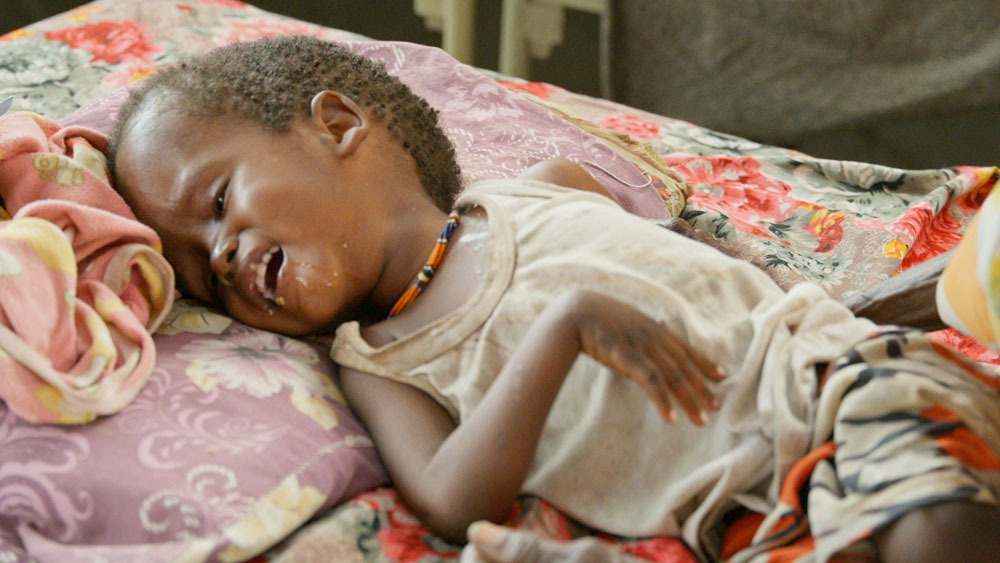
Children are innocent victims in a brutal war characterized by war crimes
and gruesome effects of chemical weapons.
No Reporters Allowed – Social Media Banned
Journalists and most aid organizations have been forbidden to enter the area for more than four years. As a result, all evidence must be obtained remotely, complicating reporting efforts.
Chemical weapons experts confirmed the wounds appeared consistent with the chemical agents sulfur mustard, lewisite, and nitrogen mustard, or a possible combination.
The experts said the effects of the chemicals can take hours to fully materialize, and depending on exposure, may also attack internal organs, and cripple or kill victims.
“By far the most substantial credible release of evidence
of the use of chemical weapons.”
– Jonathan Loeb, Senior Amnesty adviser
Recent social media blackouts were just imposed by the government, further stifling communication efforts, and preventing those on the ground from sharing reports with the outside world.
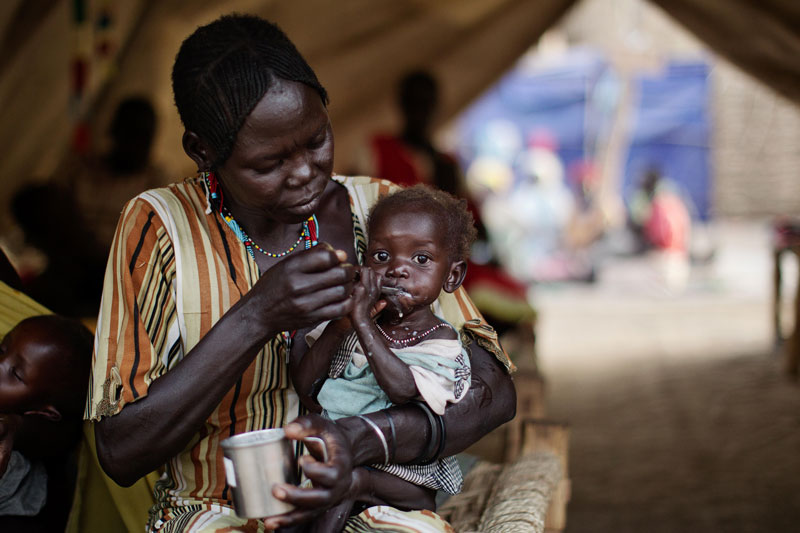
Families who fled as their homes were bombed and burned now face starvation
in a massive famine consuming Sudan.
History of the Conflict
Sudan’s current civil war, which began in April 2023, stems from a complex history of political instability and power struggles. Following its independence in 1956, Sudan endured alternating periods of military and civilian rule, alongside devastating internal conflicts, including two prolonged civil wars between the north and south.
A popular uprising in 2019 ousted long-time dictator Omar al-Bashir, sparking hope for a transition to civilian governance. However, a military coup in October 2021 dismantled the civilian-led government, escalating tensions between the Sudanese Armed Forces (SAF) and the paramilitary Rapid Support Forces (RSF).
This rivalry exploded into open conflict in April 2023, unleashing widespread humanitarian abuses, with civilians bearing the brunt of violence through unprovoked killings, sexual assaults, and mass displacements. The situation has worsened dramatically with recent reports of chemical weapons being deployed against civilians, deepening the humanitarian crisis.
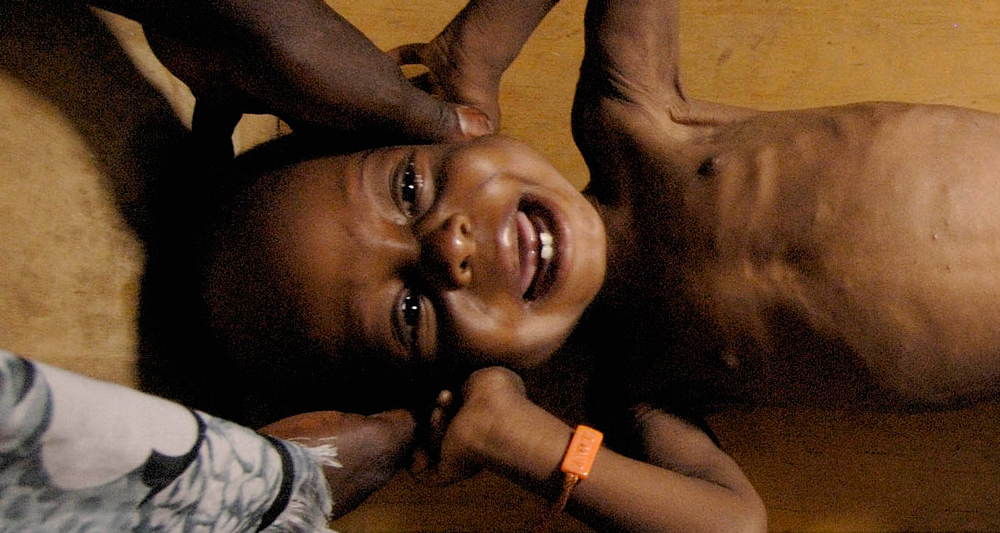
Photo evidence that recently surfaced of children’s wounds are consistent
with the horrific effects of chemical weapons attacks.
Widespread Devastation
Since the start of the war, more than 11 million Sudanese have been displaced from their homes, fleeing into neighboring countries or distant parts of Sudan like the Nuba Mountains.
The conflict has devastated the nation. Neighborhoods are burned. Cities are bombed and looted. Services like hospitals and commerce have been brought to a standstill. Sudan’s cities are a hollow shell. The forced cessation of planting and harvesting crops due to fighting, along with military blockades of supply routes, helped fuel a massive famine that now threatens millions with starvation.
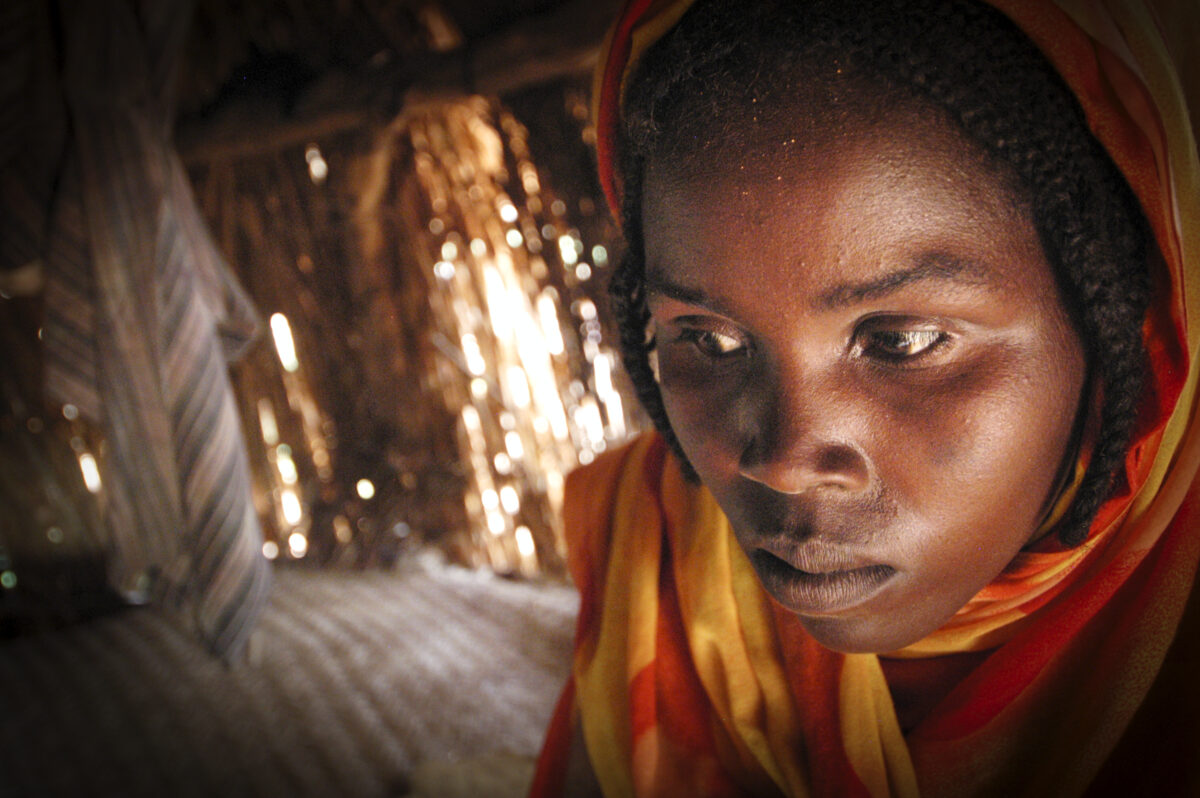
Women carry trauma from multiple sexual assaults and being forced to watch as men and boys were executed.
Banned on the World Stage for Inhumanity
Chemical weapons are among the most inhumane tools of war, causing indiscriminate suffering that devastates both civilians and combatants alike. These weapons can inflict excruciating injuries, such as chemical burns, respiratory failure, and internal organ damage, often leaving survivors with lifelong physical and psychological scars if they survive.
The global community, recognizing their inhumane and intolerable impact, adopted the Chemical Weapons Convention (CWC) in 1993, banning the production, stockpiling, and use of such weapons. Nearly every nation on earth, including the United States, is a party to the treaty, with the US completing the destruction of its entire chemical weapons stockpile in 2023 as part of its commitment to this global effort.
That such a universally condemned weapon is now reportedly being deployed in Sudan’s civil war is not only a grave violation of international law, but also a shocking escalation of violence, reflecting the utter disregard for human life that has characterized this ongoing conflict. To date little has been done to stem the violence.
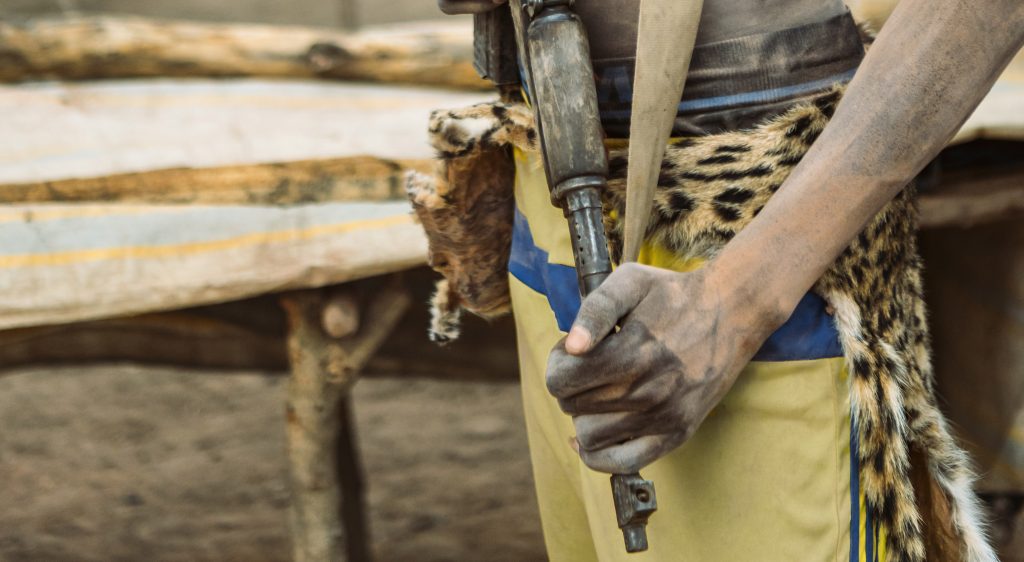
Violent militias attempt genocide on targeted people in parts of Sudan
through indiscriminate killings and intentional starvation.
Attempted Genocide
Since the latest Sudanese offensive took place in the region in January, Amnesty International reports up to 250 people have been killed by chemical weapons, and accuses the Sudanese forces of targeting civilians.
“The overwhelming majority of the attacked villages had no formal opposition presence at the time of the attack,” says the organization.
“The purpose…appears to have been to target the entire population of the village.”
Amnesty also reported that chemical attacks in some areas have been happening for eight months.
War Crimes the World Has Ignored
The use of chemical weapons now adds to many documented reports of war crimes obtained by aid organizations interviewing survivors in refugee camps. These reports include unprovoked executions of men and boys, random house to house shootings, and sexual violence against women after being forced to watch their male family members being shot.
It’s not the first time genocide has been attempted against the people of Darfur. Hundreds of thousands were targeted and killed by the regime of former dictator, Omar al-Bashir, in the previous Sudanese civil war. A similar offensive was mounted in the same war against the people of Nuba. Since the start of the 2023 civil war, targeted bombings have resumed in the Nuba region. Nuban children were killed and many injured last year when a bomb hit a school.

Toddlers are weighing in the size of six-month-old babies due to severe malnourishment.
Starvation in the Nuba Mountains
Now eyes have turned to Nuba as one of the areas facing a widespread threat of starvation, in the crisis the UN is calling the worst humanitarian catastrophe on the planet.
More than one million displaced people have fled to the remote Nuba Mountains for protection. As fighting continues, so does the steady arrival of refugees – a region already reeling from severe famine, vastly under equipped to meet the needs of a swelling refugee population. Reports of families boiling leaves and eating bugs in a desperate attempt to stave off starvation come as most aid organizations have fled the area.
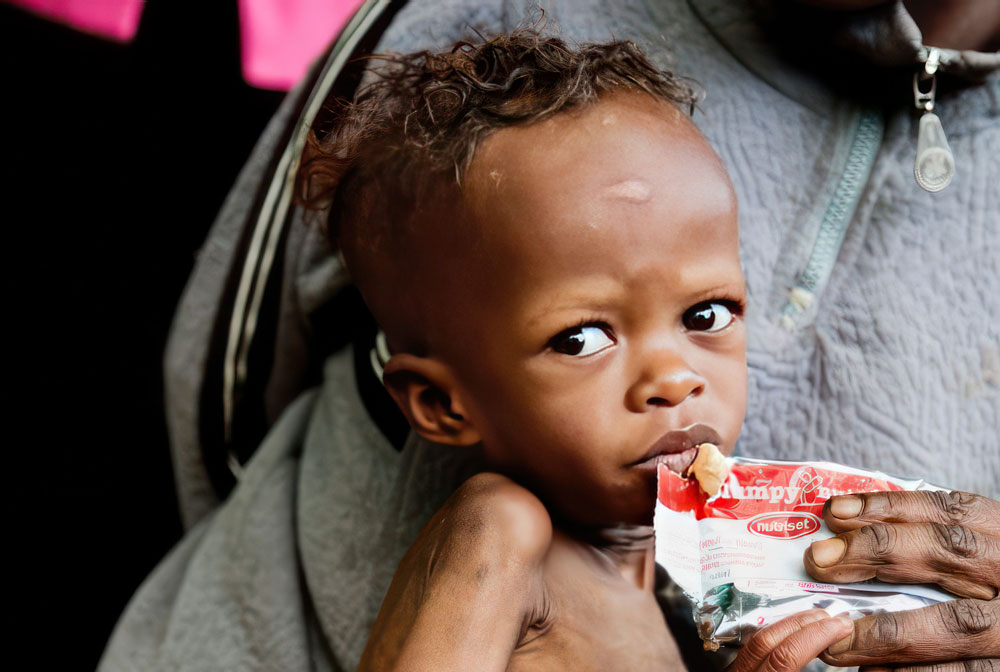
Immediate large-scale intervention is needed to stop what authorities warn
is the worst humanitarian crisis in today’s world.
Sudan Relief Fund continues to send medicine to the sick and injured, and shipments of the nutritional supplement known as Plumpy’Nut, used to save severely malnourished children from starvation. We are one of the few aid organizations working in the Nuba Mountains to fight a humanitarian disaster of massive proportions.
We also support Mother of Mercy Hospital – the only hospital for hundreds of miles in the area, and one of the few hospitals still open in war-ravaged Sudan.
If you would like to help the devastated victims of Sudan’s war – a travesty the world has been turning a blind eye to – please partner with us to rush food and medicine to suffering families and children, in this terrible ongoing crisis.
Read full reports here: https://www.cnn.com/2016/09/29/africa/sudan-chemical-weapon-darfur/index.html
https://www.nytimes.com/2025/01/16/world/africa/sudan-chemical-weapons-sanctions.html
https://www.semafor.com/article/01/16/2025/us-accuses-sudans-military-of-using-chemical-weapons
Help Now
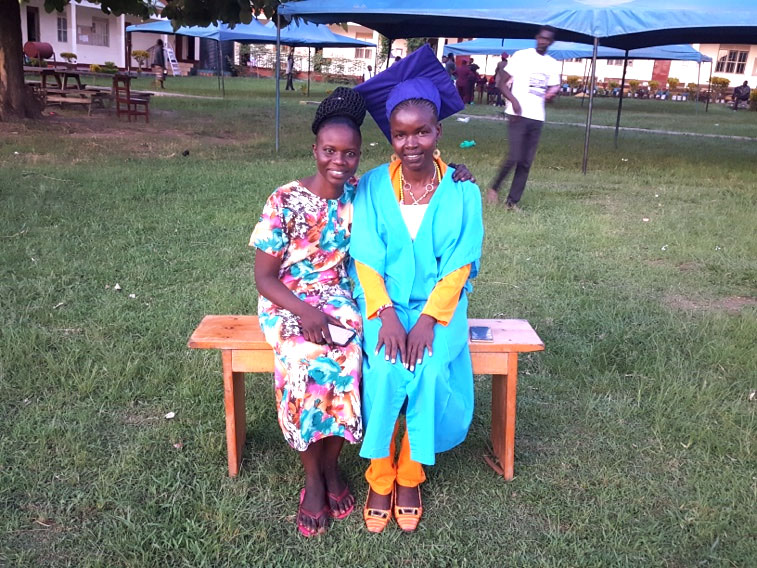
Zakia
When A Dream Keeps You Alive
From Refugee to College Grad
Sometimes it’s not a hero who saves your life. Not a skilled doctor, or a much-needed medicine, but a dream that keeps you going. A dream you hang on to that prevents you from giving up, despite the odds.
For young Zakia John Idriss, it was her dream of education that kept her alive during her time in the refugee camps.
From her early years growing up in the Nuba Mountains, Zakia loved school. She excelled in elementary, and her sights were set on being part of the minority population of girls who make it to secondary school in this part of the world. Recognizing her academic talent, Zakia’s father and family also supported her dream.
But that dream was shattered when war came. All the schools were closed. Zakia’s extended family scattered in different directions as they fled. She found herself in the Yida refugee camp in northern South Sudan. Life became completely unfamiliar in this strange and despondent place.
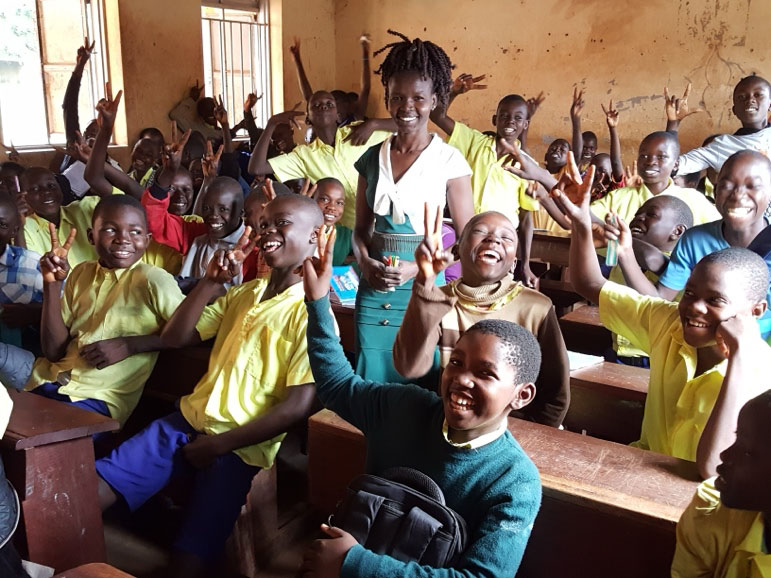
Zakia marshaled her courage and did what she was good at – she learned new skills. With training she received from the NGO at her refugee camp, she became a nursing assistant at Yida. With plenty of work at the sprawling camp, Zakia worked long hours. It kept her mind busy and away from the edge of despair. She even earned some money working for the NGO, which she saved diligently.
Then one day Zakia learned of a refugee camp in Kenya where some people lived while also attending secondary school. She saved enough money to move to Kakuma refugee camp in Kenya, where she dared to hope once again that her dream of finishing high school might still be possible.
Someone else recognized Zakia’s academic ability at Kakuma, and Zakia received a scholarship to enroll in a boarding school – the Morneau Shappell Girls’ Secondary School in Kakuma Arid Zone, Kenya. She found the new environment both challenging and rewarding. Compared to other students, Zakia said she felt like an orphan, with barely any support to meet even her basic needs. But she was working toward her dream of completing high school, and that kept her going.
In 2017, Zakia completed her Kenya Certificate of Secondary Education (KCSE). Though no family members were there to cheer her accomplishment when her certificate was awarded, Zakia knew they would be proud of her. Despite incredible setbacks, she had finished high school. It was an overwhelming moment for her.
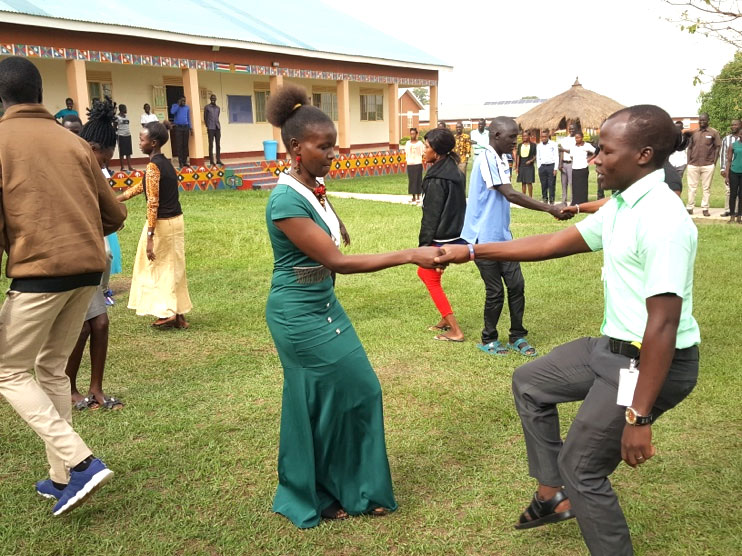
In 2021, Zakia was blessed with the opportunity to attend the Solidarity Teachers Training College (STTC) in Yambio, a Sudan Relief Fund sponsored college offering two-year teacher training certificates that qualify graduates to teach primary school. The college is sponsored as a means to promote education in South Sudan and supply the much-needed demand for qualified teachers across the country.
Zakia recalls gaining a wealth of knowledge and experience studying at STTC, and that living in the dormitories with students from other tribes across South Sudan was culturally enriching. At one point she was teaching in classrooms with over 120 students at a time, which she considered “one of her most memorable experiences.”
After two years she proudly received her Certificate in Primary Education from the University of Juba through the STTC. “Becoming a qualified primary teacher filled me with immense pride,” she shared.
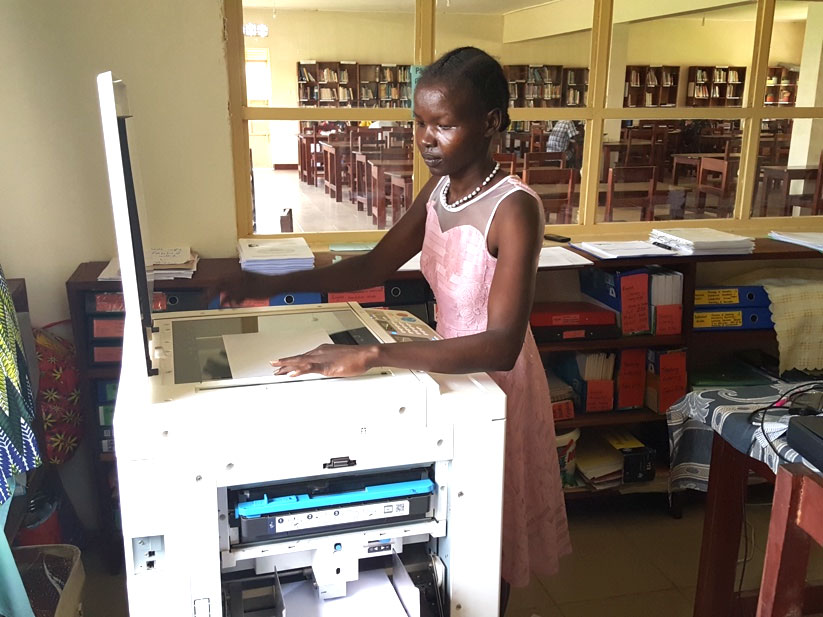
Each year the STTC selects a handful of students to receive scholarships for further college education, and Zakia was accepted for a Bachelor’s Degree program at the UK Open University. “This was the greatest gift of my life,” she recalls. She will earn a Bachelor’s of Science in Environmental Science alongside her primary school teaching certificate. After completing her degree program in December of 2024, Zakia hopes to return to Nuba to visit her family, whom she hasn’t seen in years.
“I am deeply grateful to Solidarity Teacher Training College for providing me with education. I owe a great debt of gratitude to the STTC administration, teachers, and religious sisters and brothers from different international congregations who have inspired and supported me over the last four years, giving me a new lease on life,” said Zakia.
Going far beyond she ever thought she would in her dream to finish high school, the college graduate now has a new goal in life. She hopes to open up a school in Nuba for poor children, who wouldn’t otherwise have the chance to get an education.
These stories of Lives Saved are made possible by donors and supporters of Sudan Relief Fund, whose contributions make it possible to support schools like the Solidarity Teacher Training College and scholarships for girls to attend school. Thank you for transforming lives and giving a new future to girls like Zakia.
Would you like to pray for us? Sign up for our email prayer group to receive weekly emails sharing important needs to pray for. You’ll join a faith community around the globe praying to bring hope and help to suffering people in a forgotten part of the world. Click here to find out more.
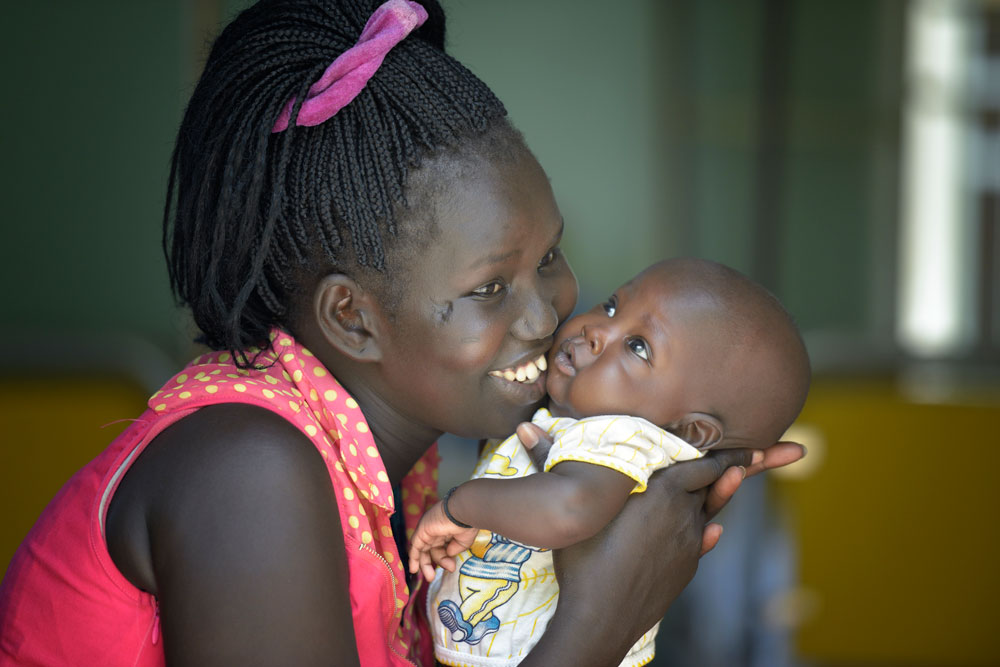
Thank You For Changing the World in 2024
Changing the world. Everyone talks about it. Some people do it. This past year you were world changers, through your support, compassion, encouragement, and prayers for the work of Sudan Relief Fund.
Your partnership has been invaluable. Not only did you meet people in their time of need, you also brought hope.
In the past year, you brought food to the famished – the most important gift in a time of famine. You helped drill clean water wells across a land sorely lacking this vital resource. You gave medicine to save thousands of lives, and brought healthcare to people who wouldn’t have had it otherwise – mothers gave birth to babies safely; children received medicine for illnesses; the injured and the sick found the help they needed.
You saved families in their time of distress and brought them from war to a safe place. You were a caregiver to children who lost their parents and found themselves orphaned with nowhere to go. You fed these children, sheltered them, clothed them, and sent them to school to learn and grow. You reminded them that they are still loved. You gave them a future they wouldn’t have.
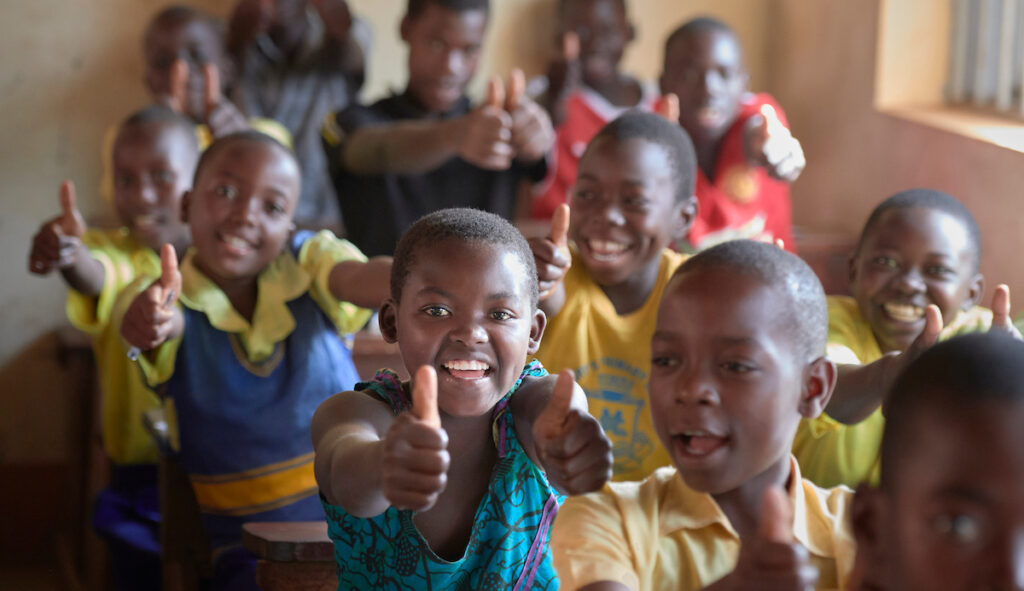
In every challenge faced this year, you carried the torch of help and hope, making an incredible difference for people in urgent need. You changed their world.
Thank you for all you do, and for transforming lives in 2024. You are the foundation of Sudan Relief Fund’s work. The good achieved last year was made possible by your support. We are humbly grateful for your compassion and commitment. And so are they.
Sincerely,
Neil A. Corkery, President
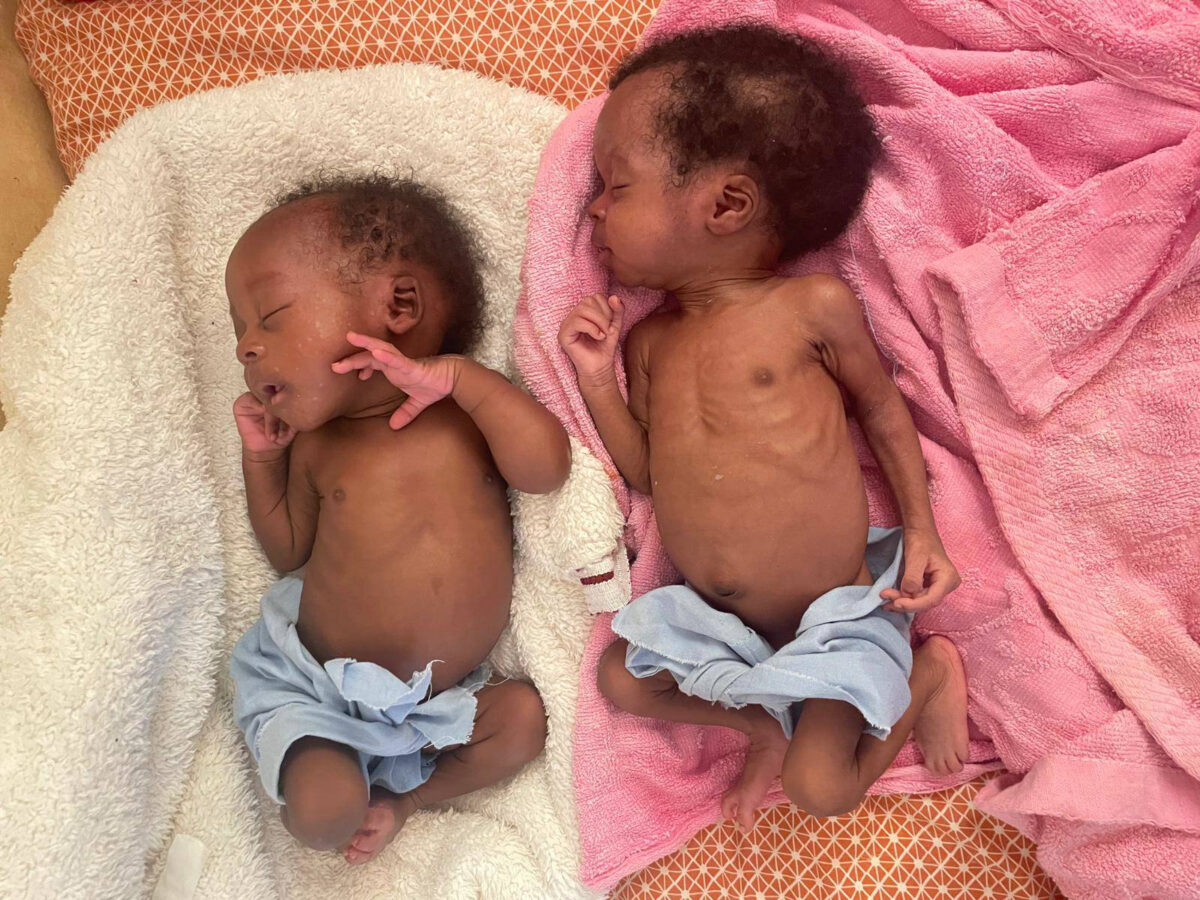
Helping Orphans Survive War and Famine
Orphans are the collateral damage in warfare. Right now they lie starving in refugee camps, or trapped in war zones they can’t escape—terrified, hungry, maybe injured.
Sudan’s brutal civil war, now in its second year, has left 11 million people with no home. Half the homeless are women and a quarter of these now destitute victims are children. These incomprehensible figures put the number of children in crisis in the millions.
Orphans Face Insurmountable Dangers
It’s difficult to estimate how many children have been orphaned in the world’s worst humanitarian tragedy today. They’re scattered in refugee camps across Sudan, South Sudan and elsewhere. Not all have even made it to camps – where in some cases the conditions are not much better than what they escaped, except there’s no immediate fighting.
Orphans who survived the war face a horrific famine stretching across the region. Food shortage is everywhere. Unaccompanied children are vulnerable in many ways. Human trafficking, assault, and being forced into violent militias are just some of the terrible threats they face. Add to this the very real risk of starvation, and no medical help if they’re injured or get sick.
Orphaned children can’t survive these overwhelming dangers alone. They will die from one or a combination of these deadly threats.
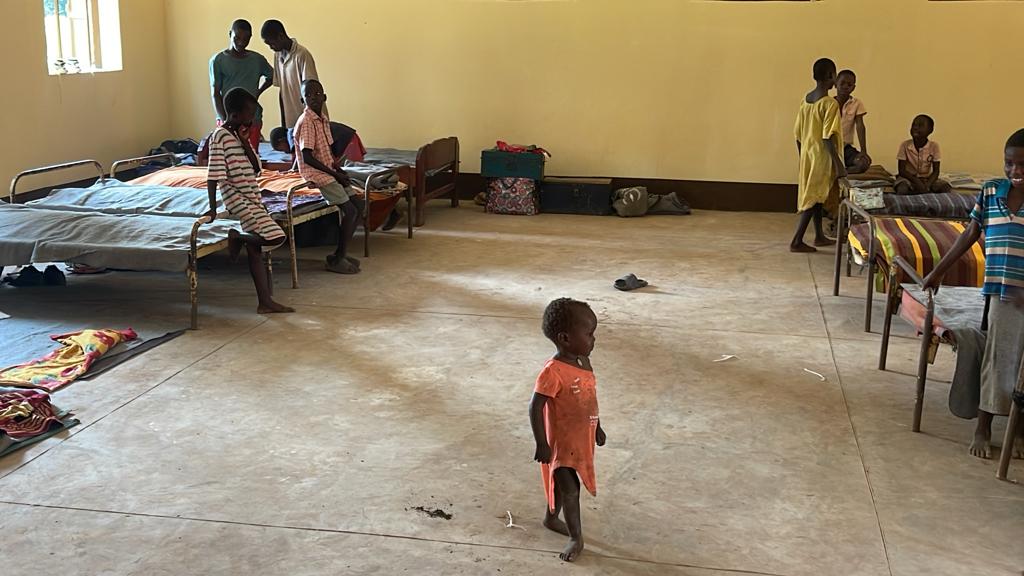
A New Home – With donor support, a new home for the children of St. Bakhita’s Orphanage is nearly complete.
Hope in a Dark Scenario
Despite the widespread tragedy, there are areas of hope – light shining into the dark plight of orphans in this part of the world. With the compassion of our faithful donors and partners, we are supporting orphanages and initiatives to help displaced children.
Caring for Refugee Children
In the region of Malakal, where hundreds of thousands have swarmed across the border for refuge, we are supporting emergency food deliveries to fight the famine. Orphans and unaccompanied children are identified for being at special risk, so they can be accounted for and don’t fall through the cracks.
In the Nuba Mountains where 3 million people are facing starvation, we’re sending nutrition packets to save malnourished children, and medicine for the only hospital open in the entire region.
Transforming their Future at St. Bakhita Orphanage
St. Bakhita Orphanage in Nzara, championed for decades by the courageous Sister Bianca Bii, takes care of more than 150 orphaned children. Here they are fed, clothed, sheltered, sleep in their own beds, receive medical care, and have the chance to go to school.
Many of St. Bakhita’s orphans were relocated from Tombura, the former site of the orphanage, when conditions became unstable and threatened the children’s safety. Since then, your support has made it possible to construct a new, sturdy home for them in the stable locale of Nzara.
Their new home is complete with girls’ and boys’ dormitories allowing for up to 200 children in each, a kitchen, gathering area, solar powered water well, and even a room for Sister Bianca and her small staff – something she’s never had. The dormitories contain double decker beds and mattresses, and a fence was built all around the orphanage for security. Your support also provided bedding and mosquito nets for each child, clothing, school uniforms, and eating utensils. The children attend a nearby school and have access to quality medical care at a Sudan Relief Fund sponsored hospital.
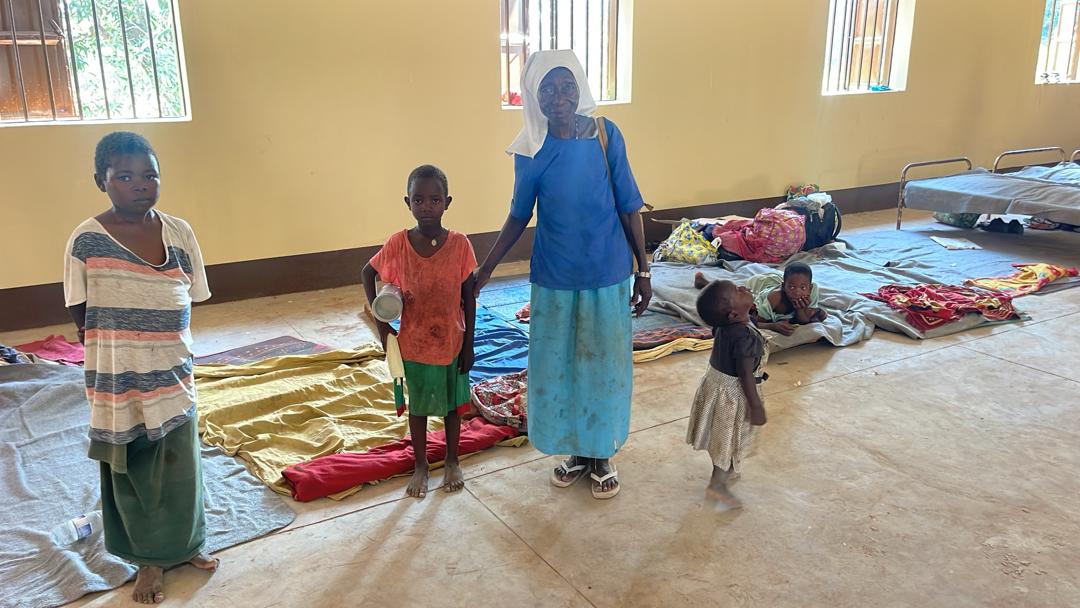
A Mother to Many – Sister Bianca Bii, now in her eighties, has watched many orphans grow up.
She cares for over 150 children.
Earlier this year, Sister Bianca – now in her eighties – was taken to Uganda to undergo minor back surgery and eye surgery. She is fully recuperated and back at the orphanage, residing with the Sisters of the Blessed Virgin Mary, who provide Sister Bianca with support to run the home. One of St. Bakhita’s girls who also needed a minor surgery was taken to Uganda at the same time. The procedure was successful, and she has recovered and returned to the orphanage.
Recently St. Bakhita received two babies after their mothers tragically died in childbirth, putting the population of children you’re helping to care for at 152. Sister Bianca started a training program this year for the teens to learn skills in tailoring, so these youth will be equipped with a trade in addition to their schooling, giving them diverse opportunities for a successful future.
Saving Malnourished and Abandoned Babies at Sisters of Charity
In Rumbek, the Missionary Sisters of Charity orphanage is nursing malnourished babies back to health. Many babies are abandoned because their mothers can’t take care of them, or they were born from trauma-induced scenarios. Or in all-too-common instances, their young mother died in childbirth. Famished mothers can’t produce milk to feed their starving infants.
These babies have no chance of survival without the faithful care of the Sisters of Charity. Now they have a future.

Saving Starving Children – War created many orphans.
Your support provides food, shelter, and medical care for the unprotected.
Make a Difference
Children at these orphanages have grown up to be successful, educated adults, with a keen sense of giving back. They are given a new chance at life – something that would never happen without your support.
Right now tens of thousands of children have lost everything in Sudan’s devastating war – including someone to take care of them. Without help, these little ones cannot survive. Will anyone hear their cries this Christmas? Please consider putting an orphaned child on your gift list this year. All they want is for someone to protect them from the terrible dangers they face. Can you imagine what they’ve endured? Things no child should ever see or experience. But you can help. You can literally save their life this Christmas.
SRF 2024 4th Quarter Newsletter
SRF 2024 Q3 Newsletter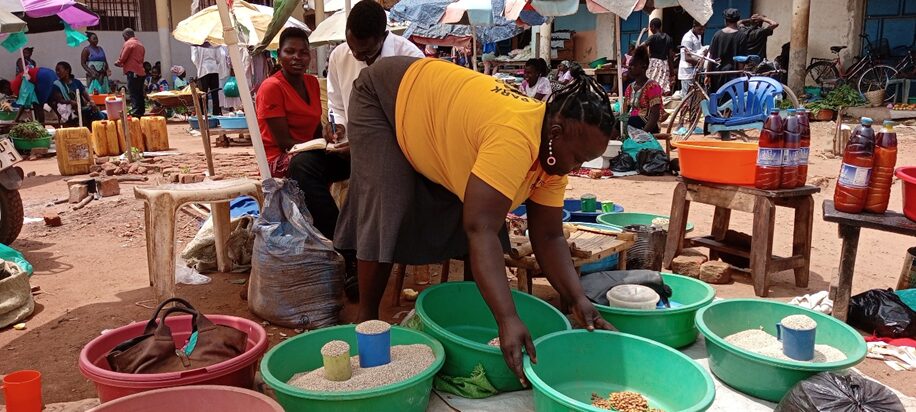
Anitha Nagara
Small Business Program Changes a Mother’s Life
“I used to worry about where our next meal would come from”
Poverty is a sinkhole that drags families into hunger, sickness, and despair – sometimes for generations. Yet often a simple act of opportunity can change everything, providing wider benefits that reverberate across families and entire communities.
Sudan Relief Fund partners with STAR Support Group (SSG) in Yambio, South Sudan, to provide opportunities like these that can change lives. One such vehicle is the microfinance program, which gives mini loans and training to help poverty stricken families – particularly single mothers – start small businesses to support themselves and their children.
In Yambio, Anitha Nagara constantly struggled to provide for her children, and held out little hope this would improve. Feeding her children was the highest priority, so there was no money left for clothing, school, or medicine if they became sick.
A woman’s opportunity has historically been extremely limited here. Despite small steps being achieved to help women, progress is slow and the problem remains widespread. Anitha and her children faced a bleak future, simply striving to survive each day at a time.
When Anitha was identified as a candidate for the microfinance program, her entire life began to turn around. She had longed for an income generating opportunity, but without the resources to get started, she never believed it was achievable. When she received a microfinance loan for a small agricultural booth at the local market, it marked the first step on her life changing journey to financial sustainability and independence.
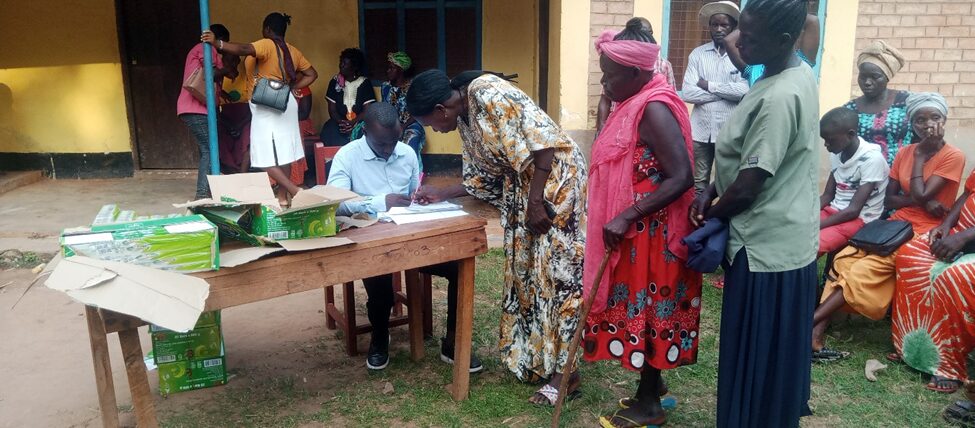
The microfinance initiative doesn’t stop at lending seed money, but provides training in basic finance and business practices as well, to help first-time small business owners achieve a successful startup. Anitha invested wisely, establishing a small-scale business in Yambio’s open market selling agricultural products and everyday goods to the community.
Her business quickly gained traction. Saving diligently, Anitha took out a second loan this year to expand her offerings. With much determination and effort, she has transformed her business from one small stall to a thriving business. With the income generated, she can feed her children consistently. She no longer worries they will go hungry from not being able to purchase food.
As she continues to grow her small business, Anitha now carries hope in her heart. She feels motivated every day to get up and manage her business, and she continues to set her sights on exploring new opportunities.
What’s more, Anitha can now afford to pay school fees and give her children the education she always hoped they could receive. Education is critical for children, especially in South Sudan, to lift them from poverty and equip them for successful futures.
“Microfinance has changed my life in so many ways,” she expressed. “I used to worry where our next meal would come from. But now I can provide for my family and give my children a chance at a better future.”
Because of your support, not only has Anitha’s life been turned around. Each of her children are impacted as well. Growing up educated, they will have better employment opportunities, and a greater ability to care for their own families.
Sometimes saving a life is as simple as providing a produce stall in a local market – a small assist with lasting and far-reaching effects.
These stories of Lives Saved are made possible by donors and supporters of Sudan Relief Fund. Thank you for reaching out to give hope and a future to families like Anitha Nagara’s.
Would you like to pray for us? Sign up for our email prayer group to receive weekly emails sharing important needs to pray for. You’ll join a faith community around the globe praying to bring hope and help to suffering people in a forgotten part of the world. Click here to find out more.
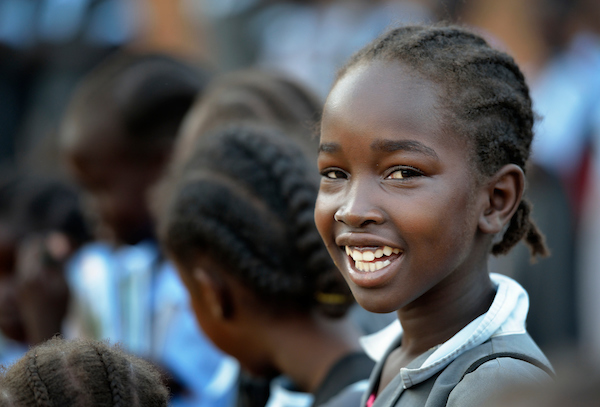
Giving Thanks to the Heroes
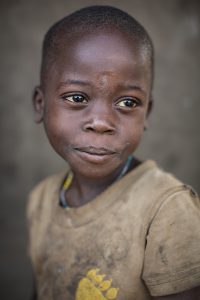
Sometimes saying thank you seems insufficient. At this time of year when those in the U.S. focus on giving thanks, we at Sudan Relief Fund extend our heartfelt gratitude to you. Our donors and partners are no less than heroes. You save vulnerable lives every day. You protect women and children. You give orphans a home. You feed starving families, bring clean water to desolate places, and give medicine to the sick. You carry the war-weary to safety. You bring hope to people who without you would have little reason to hope.
We also take this opportunity to thank our courageous workers on the ground in Sudan and South Sudan, who labor all year through challenging conditions to ensure the gifts you donate make it to the people who need them most.
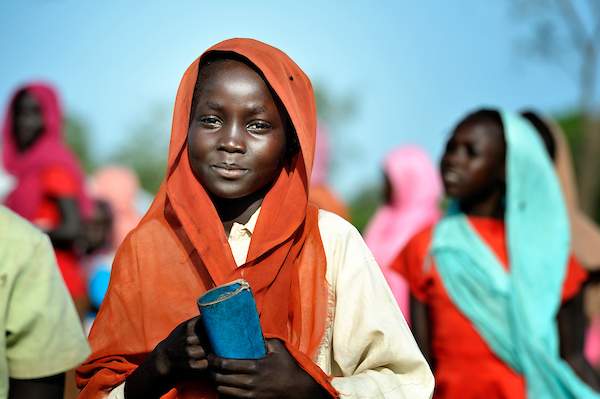
Your partnership this year has saved countless lives and relieved a multitude of suffering. We offer our thanks for your heroism. And we pray that the blessings you share selflessly will return to you in abundance, this Thanksgiving and always.
Sincerely,
Neil A. Corkery, President
Sudan Relief Fund
